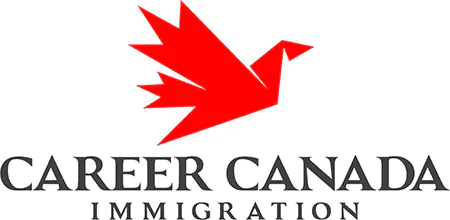Cost of Living in Vancouver

What's the Cost of Living in Vancouver?
Vancouver is an expensive city, with accommodation costs that are well above the national average. Whether you are looking to buy or rent, this Canadian city may not be for you. A recent study found that Vancouver has the most expensive rental rates in Canada. The average monthly cost of renting one-bedroom units ranges from $1,000 to $3,600 per month. When it comes to buying a home, the numbers look similarly bleak: the average price of a single-detached house in Vancouver is $1.5 million.
A few things could help alleviate some of these costs: lower taxes, cheaper rent and homes average prices and more job opportunities. But until these changes happen, we will all continue to struggle with skyrocketing costs of living.

Raising the Minimum Wage
Raising the minimum wage would likely help decrease average monthly expenses in Vancouver. If the minimum wage were $15 per hour, it would increase the average worker’s income by about $4,000 a year. With these increased incomes, people could afford to pay for more of their living expenses. For example, a person making minimum wage could afford to buy one less meal per day and instead buy toilet paper and other necessities.
This change would not address all issues with affordability: rents and home prices would still be high. But raising the minimum wage would help make some of the challenges more manageable.
Another way that could help reduce costs is through lower taxes. Lowering income taxes and decreasing sales taxes on items like food, clothing and transportation (like gas) would go a long way in helping people save money each month. Lowering these taxes may also lead to more job opportunities as people have more disposable income to spend on goods and services that create jobs.

Lowering Property Taxes
Luckily, Vancouver has introduced a new tax rate that will lower the property taxes on homes with assessed values up to $1.5 million. The new rates will be phased in and they are expected to take effect this summer. This will help those who are looking to buy and are seriously impacted by the rising property prices.
Vancouver is one of the most expensive cities in Canada with a day to day expenses that are well above the national average. Whether you are looking to buy or rent, this Canadian city may not be for you because of the high costs associated with it. What can we do about these rising costs? Lowering property taxes could help alleviate some of these costs, but until these changes happen, we will all continue to struggle with skyrocketing costs of living in Vancouver.
Property Value | Average Home Insurance Rate |
<100K | $43 |
100 – 300K | $51 |
300 – 700K | $87 |
700K – 1.5 M | $130 |
1.5 – 5 M | $155 |
Finding Affordable Housing in Vancouver
There are a number of ways to find more affordable housing in Vancouver, including buying and renting from the private market. Buying a home is the best way to ensure you get all the benefits of homeownership but it can be difficult, especially in today’s market. To buy a single-family home in Vancouver, you will need at least $700,000. There are buyers who have been able to negotiate deals for less than this price point, but it still makes up the bulk of homes on the market.
A one bedroom apartment in Downtown Vancouver costs around $2,060.
If $700,000 seems too high for your budget or if you don’t want to deal with all the work that comes with owning a property, renting might be your best option. A few years ago, landlords had plenty of empty units and there were substantial rental concessions offered. But this has changed over time as vacancy rates have decreased and renters have gained bargaining power.
In many ways, Vancouver is an expensive city to get an accommodation at, and hence time and again Vancouver has ranked as one of the least affordable cities in North America.

City District | Studio | 1 Bedroom | 2 Bedroom | 3 + Bedroom |
|---|---|---|---|---|
Downtown Vancouver | $2013 | $2446 | $3500 | $6000 |
West End | $1900 | $2108 | $3150 | $4550 |
South Granville | – | $1750 | $3200 | $3200 |
Kitsilano/Point Grey | $1995 | $2100 | $2465 | $3650 |
Westside/Kerrisdale | $1645 | $1879 | $2650 | $3700 |
Marpole | $1475 | $1800 | $2840 | $3300 |
Mount Pleasant/Renfrew Heights | $1795 | $2200 | $3450 | $3300 |
East Hastings | $3300 | $1950 | $2100 | $2400 |
Transportation Costs in Vancouver
Volkswagen golf 1.4 tsi 150 cv (or equivalent), with no extras, new | C$22,270 |
1 liter (1/4 gallon) of gas | C$1.67 |
Monthly ticket public transport | C$127 |
Taxi trip on a business day, basic tariff, 8 km. (5 miles) | C$27 |
More Employment Opportunities
Food prices in Vancouver are a major concern for the people of Vancouver. The high cost of food is a result of the rising costs of transportation, labour and rent.
Many people in Vancouver have been noticing the increase in food prices. The grocery stores are becoming more expensive.
There are many factors that contribute to the rising cost of food. One factor is that there has been a decrease in supply due to climate change and other natural disasters. Another factor is that there has been a decrease in demand for products due to people eating less meat and dairy products.
The cost of food in Vancouver has been on the rise for the past few years. This is a result of many factors, such as the increase in the cost of living, the availability and quality of produce and meat, and even weather conditions.
There are many factors that contribute to higher food prices in Vancouver. The most evident one is inflation.
Weather conditions can also affect food prices because they can play a role in how much produce is available or how much energy is needed to grow it or transport it.
| Restaurant | Prices |
| Meal, Inexpensive Restaurant | 20.00 C$ |
| Meal for 2 People, Mid-range Restaurant, Three-course | 80.00 C$ |
| McMeal at McDonald’s (or Equivalent Combo Meal) | 12.00 C$ |
| Domestic Beer (0.5-litre draught) | 7.00 C$ |
| Imported Beer (0.33-litre bottle) | 8.00 C$ |
| Cappuccino (regular) | 5.00 C$ |
| Coke/Pepsi (0.33 liter bottle) | 2.49 C$ |
| Water (0.33-litre bottle) | 2.21 C$ |
| Markets | Prices |
| Milk (regular), (1 liter) | 2.29 C$ |
| Loaf of Fresh White Bread (500g) | 3.05 C$ |
| Rice (white), (1kg) | 4.09 C$ |
| Eggs (regular) (12) | 4.79 C$ |
| Local Cheese (1kg) | 15.23 C$ |
| Chicken Fillets (1kg) | 15.11 C$ |
| Beef Round (1kg) (or Equivalent Back Leg Red Meat) | 18.90 C$ |
| Apples (1kg) | 4.09 C$ |
| Banana (1kg) | 1.85 C$ |
| Oranges (1kg) | 3.93 C$ |
| Tomato (1kg) | 4.43 C$ |
| Potato (1kg) | 2.86 C$ |
| Onion (1kg) | 2.50 C$ |
| Lettuce (1 head) | 3.02 C$ |
| Water (1.5 litre bottle) | 2.58 C$ |
| Bottle of Wine (Mid-Range) | 18.99 C$ |
| Domestic Beer (0.5 litre bottle) | 4.33 C$ |
| Imported Beer (0.33 litre bottle) | 4.06 C$ |
Food Prices in Vancouver
A major factor in the cost of living in Vancouver is the lack of job opportunities. The unemployment rate in Vancouver sits at 5.4%, which is higher than the provincial average of 4.7% and a nationwide average of 4.1%.
The high cost of living has caused many people to leave Vancouver, leading to a lack of workers and high unemployment rates. In order to help alleviate this problem, the city needs to create more jobs and offer more affordable housing options for residents.
Car Insurance Rates in Vancouver
Car insurance rates in Vancouver are on the rise. According to ICBC, this is due to a number of factors including increased legal costs, higher claims severity, and an increase in the number of accidents.
In 2016, ICBC’s net income was $1.3 billion. This was less than the $1.4 billion they projected and less than the previous year’s net income of $1.5 billion. The company estimates that as a result of these losses it will need to raise premiums by 6%.
This means that for a standard driver with a clean driving record who drives 15 kilometres per day, their annual automobile insurance premium would increase from $2,871 to $2,994 per year – an increase of approximately 3%.
Cost of Living in Vancouver for International Students
International students face a lot when they first arrive in Canada, including the cost of living. Many may not know that students from Foreign countries are eligible for the same financial assistance as domestic students and can apply for student loans. However, many students don’t take advantage of these programs because they are not aware of them or how to apply.
The good news is that there are plenty of scholarships available, so you can find one to help you offset your costs. You should also take advantage of higher education savings plans, which allow you to save money while still in school. And while you’re here, try to work as much as possible — even if it is part-time — to start building up your savings account with employer-matched contributions.
FAQs
In order to live comfortably in Vancouver and not have to worry about the high cost of living, you should make at least $40000 per year.
English & French, though majority of the people speaks English
If you are seeking the comfort of living and money is no issue then Vancouver is a good place to move to and the population is also less than that of Toronto.
Toronto is a city with a population of 2,851,571 and the 5th most populous city in North America. It is home to the Toronto Stock Exchange, the headquarters of Canada’s five largest banks, and the headquarters of many large Canadian and multinational corporations.
Vancouver has a population of 631,486 people and it is ranked as one of the most livable cities in the world. It has been ranked as having one of the lowest crime rates in Canada.
The average rent for a 1 bedroom apartment in Vancouver is $1,460. This is a lot higher than the average rent for a 1 bedroom apartment in Toronto.
